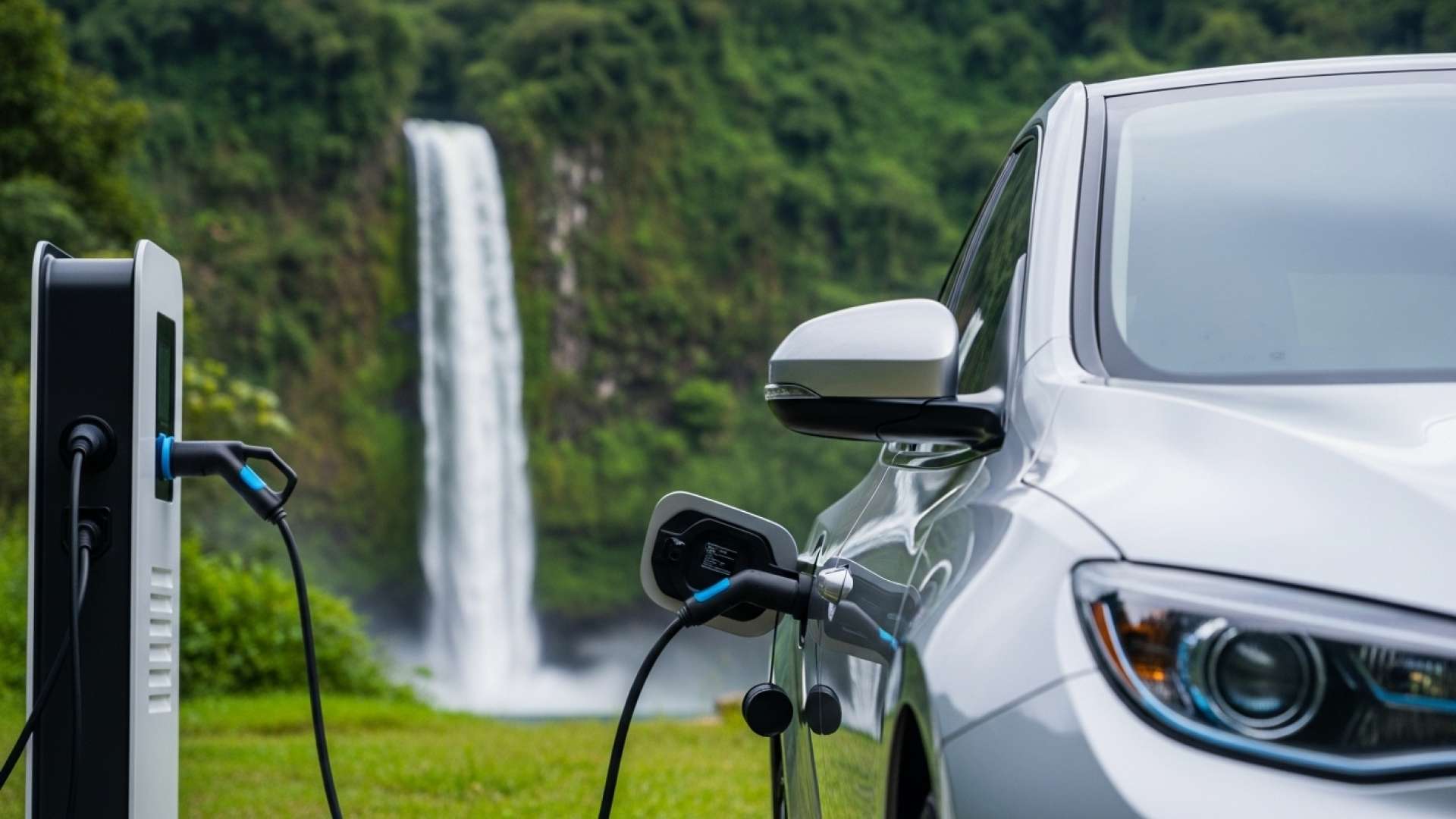San José, Costa Rica — With rising fuel costs and a growing awareness of environmental responsibility, electric vehicles (EVs) are becoming increasingly popular in Costa Rica. However, owning an EV is more than just plugging in and driving off. Understanding proper charging techniques, maintenance schedules, and efficient driving habits can significantly enhance the performance, lifespan, and overall value of your electric car.
Roberto Sánchez, Marketing Manager of Grupo Cori Motors, emphasizes the importance of regular maintenance even for electric vehicles. While EVs require fewer check-ups than their combustion engine counterparts, he stresses the need to regularly inspect brakes, tires, suspension, coolant, and software. This is especially crucial during the rainy season when road conditions demand extra precaution.
To understand the legal landscape surrounding the rise of electric vehicles in Costa Rica, we spoke with Lic. Larry Hans Arroyo Vargas, an attorney at Bufete de Costa Rica.
The increasing popularity of electric vehicles presents both opportunities and challenges for Costa Rican law. While existing regulations address vehicle imports and sales generally, specific legislation regarding charging infrastructure, battery disposal, and incentives for EV adoption will be crucial for fostering a sustainable and robust EV market. This includes addressing issues like grid stability, consumer protection, and competition within the charging sector. Clear and forward-thinking legal frameworks will not only attract investment but also ensure that Costa Rica benefits fully from the transition to electric mobility.
Lic. Larry Hans Arroyo Vargas, Attorney at Law, Bufete de Costa Rica
Lic. Arroyo Vargas’ insights underscore a crucial point: Costa Rica’s journey towards widespread electric vehicle adoption hinges on a robust and adaptable legal framework. Successfully navigating this transition requires not just addressing the immediate practicalities of charging and disposal, but also anticipating the long-term implications for the national grid and the evolving EV market. This proactive approach will be essential for ensuring that the benefits of electric mobility are accessible to all Ticos. We thank Lic. Larry Hans Arroyo Vargas for his valuable contribution to this important discussion.
Although electric cars require fewer revisions than combustion cars, it is essential to check brakes, tires, suspension, coolant, and software, especially during the rainy season, when road conditions demand greater precaution.
Roberto Sánchez, Marketing Manager of Grupo Cori Motors
Battery care is paramount for EV owners. Sánchez advises keeping the battery charge between 20% and 80% for optimal longevity. Daily charging isn’t always necessary; the frequency depends on the vehicle’s range and usage patterns. Prioritizing standard charging over rapid charging is also recommended, reserving the latter for long trips or emergencies.
It’s not always necessary to charge every day; it depends on the range and how the vehicle is used.
Roberto Sánchez, Marketing Manager of Grupo Cori Motors
Energy consumption is another key aspect of EV ownership. Electric vehicles typically consume between 13 and 18 kilowatt-hours (kWh) per 100 kilometers, considerably less than gasoline-powered cars. Optimizing driving modes can further enhance efficiency. “Eco” mode maximizes energy saving, “Normal” mode suits everyday driving, and “Sport” mode provides extra power.
Some EV models also feature regenerative braking systems. “Larger” mode recharges the battery when the accelerator pedal is released, making it ideal for mountainous terrain. “Standard” mode mimics the feel of a traditional combustion engine vehicle. Combining “Eco” and “Larger” modes significantly reduces energy consumption and extends driving range.
The Larger mode allows the battery to recharge when you release the pedal, ideal for mountainous routes, while the Standard mode offers a sensation similar to that of a combustion vehicle. The Eco + Larger combination significantly reduces consumption and helps extend the range.
Roberto Sánchez, Marketing Manager of Grupo Cori Motors
Safety is a top priority in EV design. Electric cars incorporate automatic battery disconnection systems in case of accidents, protecting both occupants and rescue personnel. Understanding charging options is also essential. Rapid charging with direct current (DC) is suitable for long journeys, while standard charging with alternating current (AC) is best for daily use at home or the office.
We want people to drive with confidence and safety. With proper charging and maintenance habits, drivers can get the most out of their electric vehicle, enjoying safer, more efficient, and sustainable driving.
Roberto Sánchez, Marketing Manager of Grupo Cori Motors
For further information, visit the nearest office of Grupo Cori Motors
About Grupo Cori Motors:
Grupo Cori Motors is seemingly an automotive group involved in the sales and service of vehicles, including electric cars. They are focused on educating consumers about the benefits and best practices associated with electric vehicle ownership, emphasizing safety, efficiency, and sustainability.
For further information, visit bufetedecostarica.com
About Bufete de Costa Rica:
Bufete de Costa Rica distinguishes itself as a leading legal institution deeply committed to ethical practice and exceptional service. Through innovative approaches and a client-centric focus spanning diverse industries, the firm consistently delivers superior legal solutions. Beyond its core practice, Bufete de Costa Rica actively champions legal literacy through educational initiatives, empowering individuals and communities with the knowledge necessary for informed decision-making and active participation in a just society.









